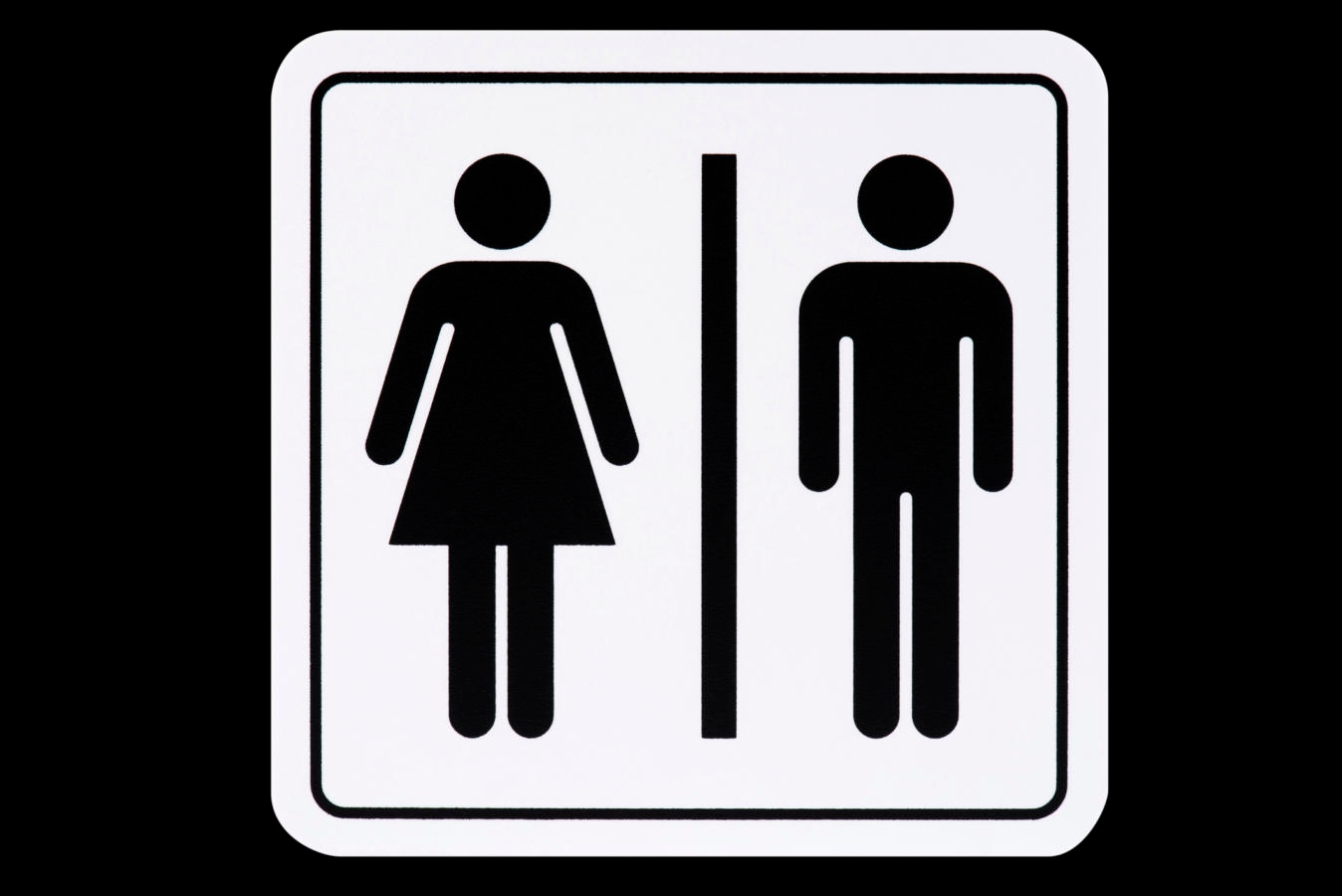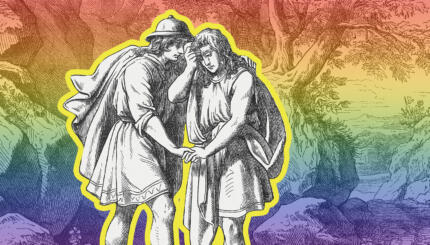The morning blessings include one praising God “who has not made me a woman.”
Few Jewish religious texts have provoked as much indignation and discomfort as the brief passage that is recited by traditional Jewish men at the beginning of the daily morning prayers: “Blessed are you, Lord, our God, ruler of the universe who has not created me a woman.” For many, it expresses a quintessential misogyny that lies at the core of our patriarchal religion.
The text in question appears as part of a sequence of blessings, found in the , that are meant to accompany activities that are performed in the course of waking up in the morning, such as hearing the first cock-crow, opening one’s eyes, stepping on the ground, getting dressed, etc. In order to maintain uniformity, medieval Jewish authorities preferred that all the blessings be recited together in the synagogue, rather than left to the discretion of individuals.
The “has not created me a woman” blessing is part of a subgroup that expresses similar gratitude for not having been created a gentile (i.e., a heathen) or a slave. Differing liturgical traditions are at variance over whether these three blessings are to appear near the beginning of the sequence or at its conclusion.

Help us keep Jewish knowledge accessible to millions of people around the world.
Your donation to My Jewish Learning fuels endless journeys of Jewish discovery. With your help, My Jewish Learning can continue to provide nonstop opportunities for learning, connection and growth.
This inconsistency attests to an important fact: The three “who has not made me” blessings were not originally part of the same set as the others. They originate in a separate Talmudic passage, ascribed to the second-century sage Rabbi Judah bar Ilai. Earlier versions of the tradition read “ignoramus” instead of “slave.”
Contemporary apologists for the blessing insist that the blessing is not intended to disparage women or imply that they are inferior, but merely to express gratitude for the fact that men are obligated to perform more religious commandments. It must be admitted that the “apologetic” explanation is not a modern invention, but it appears explicitly in the earliest version of the blessing.
An old liturgical fragment from the Cairo Geniza contains a more positive formulation of the same themes “…who has created me a human and not beast, a man and not a woman, an Israelite and not a gentile, circumcised and not uncircumcised, free and not slave.”
Some scholars have suggested that the Apostle Paul was alluding to an early version of this blessing when he declared, “there is neither Jew nor Greek, there is neither slave nor free, there is neither male nor female…” Others have preferred to portray Rabbi Judah as reacting to Paul’s words.
The American Conservative Movement opted to replace the negative formulation with an affirmation of what we are: free, Jewish, and (instead of “male”) created in God’s image. In making this change, they could cite the precedent of the Geniza text cited above, as well as the text of the Rome , (High Holiday prayer book) which reads “who has made me an Israelite.”
Several modern scholars, beginning with the philosopher Arthur Schopenhauer, have remarked on the uncanny parallel between the wording of the Jewish blessings and an ancient Greek tradition ascribed variously to Thales, Socrates, or Plato. The sage in question was allegedly in the habit of thanking God for three things: “that I was born a human and not a beast; a man and not a woman; a Greek and not a Barbarian.”
Is it possible, then, that our problematic blessing is not even an original Jewish one, but merely a plagiarism from Greek sources?
Most traditional prayer books prescribe an alternative blessing to be recited by women, “..who has created me according to his will.” The blessing, which strikes many as a kind of verbal sigh of resignation, is first cited by the 14th-century Spanish liturgical authority Rabbi David Abudraham.
Evidently, that was not the sole option available to women in their prayers.
I recall many years ago paying a visit to a well-known American Judaica scholar who had devoted much of his career to obtaining access to Hebrew manuscripts in Soviet libraries. The scholar had just returned from a jaunt to Russia, and was eager to show me his latest finds. One manuscript puzzled him. It was a small handwritten (prayer book) evidently written in medieval Germany. Upon opening it to the morning blessings, we noticed some orthographic irregularities and tampering in the text of the “who has not made me a woman” blessing.
After a few minutes of investigation, I realized what had happened. The prayer book, which had been custom-written for a woman, had originally contained a blessing praising the Almighty “who had not created me a man,” to be recited while the men-folk were expressing their gratitude for not being women. Subsequent owners had “corrected” the text in order to bring it into conformity with the standard male wording.
The discrepancy between the Spanish rite, as reflected in Abudraham’s text, and the Ashkenazic practice attested in this manuscript, is consistent with a general pattern that is emerging in the study of medieval Jewish society; namely, that the Jewish women of France and Germany enjoyed a much higher social and religious status than their sisters in Islamic lands.
In a society that encourages men to cultivate their “feminine sides,” I doubt that this vive la difference approach would be considered acceptable in all circles. At any rate, it does have an unexpectedly egalitarian ring to it, and serves to remind us of the diversity of approaches that coexisted in earlier Jewish tradition.
This article appeared originally in the Calgary Jewish Free Press and is reprinted with permission.



